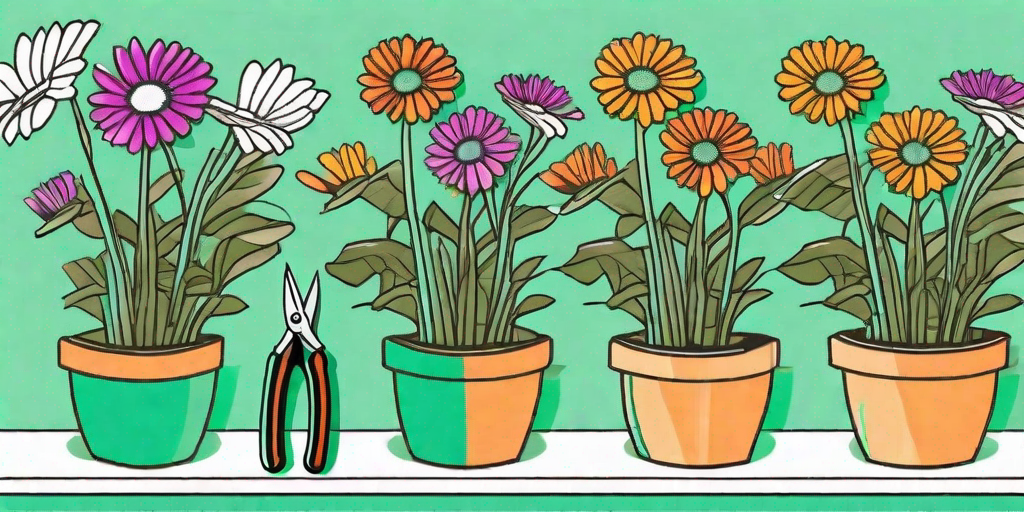
Welcome, fellow green thumbs and flower enthusiasts! Today, we're diving headfirst into the world of Dianthus, a genus of flowering plants that are as diverse as they are beautiful. But we're not stopping there. We're also going to explore the perfect companion plants for your Dianthus to ensure your garden is blooming with color, fragrance, and life. So, buckle up, grab your gardening gloves, and let's get started!
The Dianthus Dynasty: A Brief Overview
Before we delve into the companionship of plants, let's take a moment to appreciate the star of our show: the Dianthus. These perennial plants, also known as "Pinks," are native to Europe and Asia and are beloved for their spicy fragrance and vibrant colors. They're not just a pretty face, though. Dianthus are hardy, drought-tolerant, and relatively easy to grow, making them a favorite among novice and experienced gardeners alike.
There are over 300 species of Dianthus, ranging from the classic Carnation to the charming Sweet William. Each species has its own unique characteristics, but they all share a love for full sun and well-drained soil. Now that we've set the stage, let's introduce the supporting cast: the companion plants.
Companion Planting: The Art of Plant Friendship
Companion planting is the practice of growing different plants together for mutual benefit. This could be for pest control, pollination, providing habitat for beneficial insects, maximizing use of space, or simply for increasing crop productivity. In the case of Dianthus, companion plants can help enhance their growth and flowering, while also creating a visually appealing garden.
But, like any good friendship, it's not just about what one party can do for the other. The companion plants also benefit from their relationship with Dianthus. For instance, Dianthus can help deter pests that might otherwise harm their plant buddies. It's a win-win situation!
The Perfect Companions for Dianthus
Now, let's get to the heart of the matter: which plants make the best companions for Dianthus? Here are a few favorites:
Roses
Roses and Dianthus are a match made in horticultural heaven. The robust, vertical growth of roses provides a stunning contrast to the low-growing, bushy Dianthus. Plus, the rich fragrance of roses combined with the spicy scent of Dianthus is nothing short of olfactory bliss.
But it's not just about aesthetics and aroma. Roses and Dianthus also share similar growing conditions, making them easy to care for together. Just remember to give both plants plenty of sunlight and well-drained soil.
Lavender
If you're aiming for a garden that's a feast for the eyes and the nose, you can't go wrong with Dianthus and Lavender. The purple flowers of Lavender complement the vibrant hues of Dianthus, while their combined fragrances create a calming, spa-like atmosphere.
Like Roses, Lavender also shares similar growing conditions with Dianthus. Both plants love full sun and well-drained soil. Plus, Lavender's drought-tolerance makes it a reliable companion during those hot, dry summer months.
Salvia
For a garden that's buzzing with life, consider pairing Dianthus with Salvia. These plants are both excellent at attracting pollinators like bees and butterflies, which can help boost your garden's productivity.
Salvia's tall, slender flowers also provide a nice contrast to Dianthus' bushy growth. And, of course, they share similar growing conditions, making them easy to care for together.
FAQs
Can Dianthus be planted with vegetables?
Absolutely! Dianthus can be a great companion for many vegetables. Their ability to attract pollinators can boost vegetable production, while their scent can help deter pests. Just be sure to give both the Dianthus and the vegetables the growing conditions they need.
Do Dianthus attract pests?
While no plant is completely immune to pests, Dianthus are relatively resistant. Their spicy fragrance can deter many common garden pests. However, they can occasionally attract aphids, so keep an eye out for these little critters.
How often should I water my Dianthus and their companions?
Both Dianthus and their recommended companions are relatively drought-tolerant, so they don't need to be watered too frequently. A good rule of thumb is to water when the top inch of soil feels dry to the touch. But remember, it's always better to underwater than overwater!
Conclusion
And there you have it, folks! The perfect Dianthus companion plants for a blooming garden. Remember, the key to a successful garden is not just choosing the right plants, but also understanding how they interact with each other. So, don't be afraid to experiment and see what works best for your garden. After all, gardening is as much an art as it is a science.
So, go forth, plant some Dianthus, make some plant friendships, and most importantly, have fun! Because at the end of the day, the best garden is the one that brings you joy.















